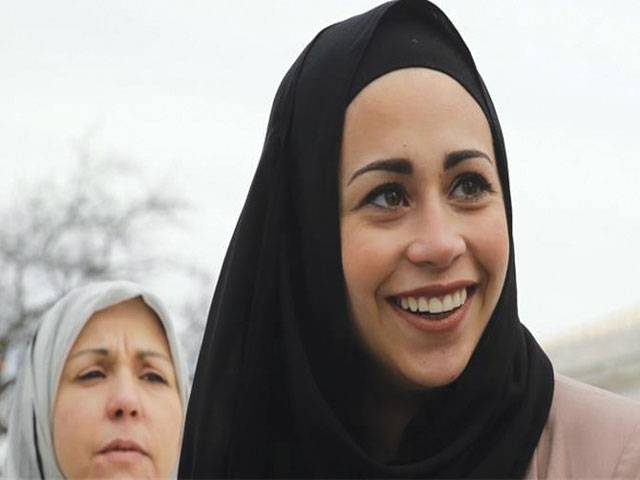WASHINGTON - A prominent Muslim civil rights group has welcomed as "historic" a ruling by the US Supreme Court in favour of a Muslim woman who sued an American clothing chain after she was denied a job because she wore hijab.
"We welcome this historic ruling in defence of religious freedom at a time when the American Muslim community is facing increased levels of Islamophobia," Nihad Awad, executive director of the Washington-based Council on American Islamic relations (CAIR), said in a statement.
In an 8-1 vote, the court ruled in favour of the US Equal Employment Opportunity Commission (EEOC), the federal agency that sued Abercrombie & Fitch, the clothing retailer, on behalf of Samantha Elauf. This case was originally brought to the EEOC on behalf of Elauf by CAIR's Oklahoma chapter in 2008 when she filed a complaint of discrimination with that office.
"We applaud Samantha's courage in standing up for her rights by contacting CAIR, which led to the EEOC lawsuit and to our amicus brief filed with the court," CAIR's Awad said.
"The Supreme Court rightly underscored that a job applicant's religious beliefs and practices must play no role in an employer's hiring decision," said CAIR's Senior Staff Attorney William Burgess.
"A company engages in illegal employment discrimination when it decides not to hire someone out of a desire to avoid accommodating his or her religious needs, confirmed or not."
The Supreme Court's ruling allows Elauf to raise discrimination claims without having to prove Abercrombie & Fitch rejected hiring her because she wore a headscarf for religious reasons.
Although Elauf wore a hijab, she was never informed about the "look policy," and her religious beliefs were never discussed, only assumed by company representatives.
Under federal civil rights law, employers are required to "reasonably accommodate" the religious practices of workers and applicants, as long as it only imposes a minimal burden on the business.
The court's decision heightens the duty of an employer to accommodate the religious practices of workers.
"The rule for disparate-treatment claims based on a failure to accommodate a religious practice is straightforward: An employer may not make an applicant's religious practice, confirmed or otherwise, a factor in employment decisions," read the court's opinion, delivered by Justice Antonin Scalia.
The dissenting vote came from Justice Clarence Thomas.
Abercrombie & Fitch has since changed its "look policy" to allow headgear, including hijabs. The company has previously paid settlements in discrimination suits, including a $50 million payment in 2005 to Hispanic, African-American and Asian job applicants in a lawsuit alleging a lack of diversity.
Friday, April 19, 2024
US SC ruling in favour of woman in hijab lauded

8:27 AM | April 19, 2024
8:09 AM | April 19, 2024
Minister reviews naan, roti prices
April 19, 2024
ETPB land worth Rs 40b retrieved so far
April 19, 2024
Lahore revamping plan to complete by June 30
April 19, 2024
CCPO reviews security for by-elections, NZ cricket matches
April 19, 2024
A Tense Neighbourhood
April 19, 2024
Dubai Underwater
April 19, 2024
X Debate Continues
April 19, 2024
Hepatitis Challenge
April 18, 2024
IMF Predictions
April 18, 2024
Kite tragedy
April 19, 2024
Discipline dilemma
April 19, 2024
Urgent plea
April 19, 2024
Justice denied
April 18, 2024
AI dilemmas unveiled
April 18, 2024
ePaper - Nawaiwaqt
Advertisement
Nawaiwaqt Group | Copyright © 2024





